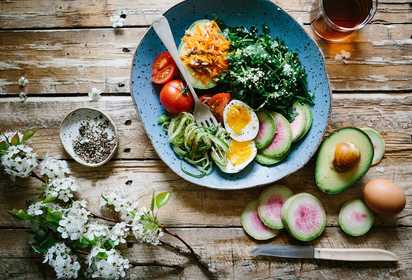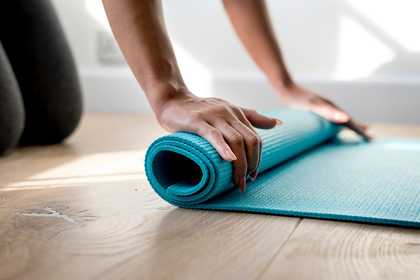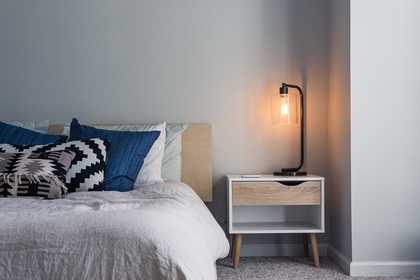How can I boost my immune system this autumn?

Your immune system is vital in keeping you healthy. As your body’s own built-in defence mechanism, it works tirelessly throughout the year to ensure that any coughs and colds are kept at bay by fighting against any viruses or bacteria that you may come into contact with. However, as the weather gets a little bit colder through the autumn and winter months, it can sometimes need a helping hand in keeping you healthy.
Your skin, mucus, gut and lymph’s make up the most important components of your immune system, although between 70-80% of your immune system tissue is located in the stomach. These defence mechanisms work collaboratively to prevent the majority of nasty substances from entering your body, by carefully identifying anything that might pose as potential harm to your body, such as germs and parasites.
Over time, your body begins to recognise the majority of these germs and can easily work against them to ensure that you stay healthy. However, occasionally, your body will come into contact with an infectious agent that it hasn’t before, causing you to fall ill. During these times, the white blood cells in your body spring into action, fighting against these antibodies by viciously attacking them.
The colder months are notoriously difficult times for your immune system as they have more germs, viruses and bacteria to contend with. Although an autumn spa weekend in Yorkshire is a great way to allow yourself to recover, there is also a number of different things that you can do in order to boost your immune system. Find out more below!
Food

It should come as no surprise that your diet can have a massive impact on your health and wellbeing. However, there are certain changes that you can make to what you eat that can be especially beneficial throughout the autumn and winter months. Your immune system is affected by what you eat, so making sure that you have a balanced, nutritional diet is great.
Vitamins are a fantastic way of boosting your immune system. Antioxidants, such as vitamin C, can be found in a variety of different foods. These are really beneficial as they protect cells from free radical damage, which helps the body to absorb iron better. However, as you get older, the vitamins that you’re deficient in start to change. Vitamins A, B6, C, D and E as well as minerals such as zinc and copper all work in collaboration to help keep your immune system in balance.
Leafy greens such as spinach have a myriad of vitamins, as well as calcium and potassium which are good for your health. Other vegetables such as peppers are also beneficial, especially when eaten raw, as well as sweet potatoes that offer vitamins B6 and C.
Stress
Stress can be massively detrimental to your health, especially your digestive system. As you begin to stress, signals are sent to your digestive system causing an influx of unnecessary activity taking place. During this time, especially if you haven’t eaten, you’re more prone to issues such as ulcers, due to a build-up of stomach acid. However, ongoing stress can also impact other parts of the body, too. With a heightened stress level, your body triggers the release of stress signals to the endocrine system. The system is composed of glands that release important hormones which affect almost every part of your body, including growth, sleep and mood. When this is triggered, your immune system is suppressed, meaning that you’re more susceptible to illness.
Over autumn, managing these levels is crucial. Practising meditation for an hour a day is a great way of keeping these levels down, as is lowering the amount of caffeine that you drink in a day. Both of these activities encourage your heart rate to lower, creating a sense of calm which is not only beneficial for your immune system but is good for your wellbeing too.
Exercise

Throughout the year you should do your best to set time apart to engage in some light exercise. However, as it gets colder this can be especially useful. When it comes to your immune system, frequent, short bouts of exercise seem to work best for your immune system. In a study by the American Physiological Society, it was found that 22% of recreational athletes fell ill in comparison to 45% of those who described their lifestyle as sedentary. One of the reasons for this is because exercise causes a change in the levels of norepinephrine and cortisol that you produce, two hormones which are both attributed to stress.
When it comes to exercise, one of the most important pieces of advice is to listen to your body. If you’re feeling particularly drained, cut down for the rest of the week to allow yourself to recover otherwise it could be detrimental to how you’re feeling. In fact, too much exercise can cause your immune system to become suppressed, which means that you’re putting yourself at risk of catching a nasty illness.
Sleep

Sleep is one of the body’s most important functions. However, when you’re not getting enough sleep each night, you can be left feeling under-the-weather. Your immune system is regulated, with certain responses taking place throughout the day. Over the course of 24 hours, each set of cells and cytokines, the proteins which compose your immune system, begin to work, with the levels of pro-inflammatory cytokines highest at night.
When you begin to feel ill, the levels of pro-inflammatory cytokines are at their highest, encouraging you to sleep by feeling more tired. What’s more is that the production of serotonin is higher, which also promotes sleep. Not only can not getting enough sleep put you at higher risk of falling ill, but it also means that your body is less well-equipped to deal with any existing conditions that you may have.
The recommended number of hours sleep an adult should get each night is between seven and eight, with those who are slightly younger requiring more. This doesn’t mean that the longer you sleep for the better quality you’re getting and, in fact, could mean that you’re having difficulty staying asleep.